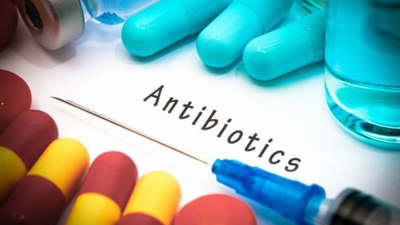Common human practice, or mistake to be sure, is to give an antibiotic when something doesn’t seem right. Be it headache, stomach ache or fever, people do not consult doctors and just take these medicines which are easily available in the shops.
With the growing concern about HMPV or human metapneumovirus, the question whether antibiotics can work against them needs to be seriously addressed. The simple answer is no. But let’s find out more about it.
Antibiotics are designed to kill bacteria, not viruses. Human metapneumovirus (HMPV) is a respiratory virus that primarily affects the lungs and respiratory tract. It belongs to the paramyxovirus family and shares similarities with respiratory syncytial virus (RSV), a common virus that affects young and old alike.
See more: HMPV Symptoms: Infants, older adults more vulnerable; common symptoms to look out for
Antibiotics disrupt key cellular functions of bacteria, such as cell wall synthesis, protein production, or DNA replication, and kill them selectively without harming human cells.
Viruses, including HMPV, differ significantly from bacteria in structure and function. They are much smaller and lack cellular structures such as a cell wall, ribosomes, or cytoplasm. Instead, viruses consist of genetic material (DNA or RNA) imprisoned in a protein coat. They cannot reproduce on their own and must invade host cells, using the host’s machinery to produce more viral particles.
Because viruses do not have components that antibiotics target, such as a cell wall or ribosomes, antibiotics are ineffective against them. Using antibiotics for viral infections, including HMPV, will not kill the virus or relieve symptoms.
HMPV Prevention: What happens when you take antibiotics when you don’t have a bacterial infection?
If you use antibiotics without consulting your doctor, your body becomes resistant to that particular antibiotic. This makes it harder for the body to treat bacterial infections in the future. In addition, unnecessary use of antibiotics can cause nausea, diarrhea or allergic reactions.
Always see your doctor if you have a fever or cough. Viral infections cause fever, fatigue, cough and congestion. Bacterial infections, usually strep throat or urinary tract infections, cause localized symptoms such as a sore throat or burning during urination. Viral infections are self-limiting, meaning they can clear up as the immune system fights the viruses; however, bacterial infections can worsen without treatment, leading to severe complications such as sepsis.
There are currently no specific antiviral drugs approved for HMPV. Therefore, prevention is crucial. Here are some steps you can take to reduce your risk of contracting HMPV:
- Maintain hand hygiene by washing your hands regularly with a good quality soap.
- Avoiding close contact with infected people.
- Disinfection of frequently touched surfaces.
- Wearing masks in crowded or high-risk areas during outbreaks.
- Strengthen your immune system with a healthy diet, regular exercise and adequate sleep.











